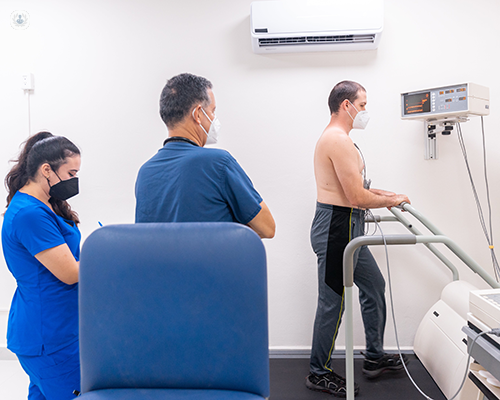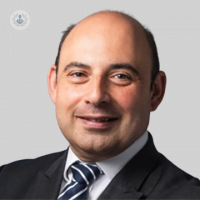Cardiac screening: Keeping your heart healthy
Written in association with:Cardiac screening is the process of testing for possible heart conditions, with the aim of detecting conditions such as coronary artery disease at an early stage, often before symptoms begin.
Here to provide an expert insight into cardiac screening, including the different types of tests available, is Dr Nickolaos Pantazopoulos, renowned consultant cardiologist in London.

What are the different types of cardiac screening tests available?
Cardiac screening can be individualised to the needs and to the risk factors of every patient.
The process starts with a general consultation, where the purpose is to measure the patient’s degree of risk.
Depending on what is needed, we can then start with simple tests like electrocardiogram and an echocardiogram. The echocardiogram is a simple ultrasound scan of the heart. It only takes a few minutes to do and it gives us a general idea of the state of the patient's heart.
Depending again on what is needed, we can then progress to tests like stress echocardiograms, which are accurate stress tests that can be done both on the treadmill or with medication.
In addition, we can progress to tests like cardiac CT scans that analyse the degree of wear-and-tear in the arteries. We can also measure the risk of future problems with the heart, using what is commonly known as the calcium score. There are more specialised tests available, but again these are tailored depending on the outcome of the first investigation.
On top of all this, there is a blood test to determine whether various blood factors are affecting the patient's health. We look at things like cholesterol levels, kidney function, thyroid function, and liver function.
Finally, there are other tests that can be added as well depending on the patient’s age and gender.
Who should be screened for cardiac disease?
I personally think every adult over the age of 40 should be screened.
From then on, it depends on the patient’s individual risk factors. For example, people who have diabetes or people with a family history of early onset heart problems should of course be screened earlier in life.
Quite often, people come for screening even without having risk factors simply because they are concerned. A basic screen can be very helpful in alleviating these worries.
How often should cardiac screening tests be performed?
This depends on the findings of the original screen and on the patient’s risk factors.
For patients with a low risk level and satisfactory results in the original screen, I would say that a basic screen once every couple of years is sufficient. Regardless, this period can obviously be adjusted either to more frequently or less frequently.
What are the benefits and risks of cardiac screening?
In terms of benefits, people who are starting to develop heart problems that perhaps haven’t caused symptoms yet can identify these issues early enough and prevent them from becoming more significant in the future. This can reduce their risk of having a heart attack or stroke and of needing cardiac surgical procedures later in life, which is very beneficial.
In terms of risks, these are very, very minimal. There is a tiny chance of stressing the heart during a stress test, but this is obviously the reason why a stress test is done in a controlled environment. Cardiac CT scans give a small amount of x-rays, but with today’s modern machines this is actually at an extraordinarily low level that doesn’t make a significant difference to the patient's health.
How can healthcare professionals improve the use of cardiac screening in clinical practice?
In standard practice, primary healthcare professionals do include questionnaires that regard the patient's risk for various conditions. If it is highlighted from the results of the original interaction with the patient that that individual patient may have a higher risk of heart disease in the future, then the patient can be flagged up and be forwarded for the screening.
If you are worried about your heart, don’t hesitate to request an appointment with Dr Nickolaos Pantazopoulos via his Top Doctors profile today.


